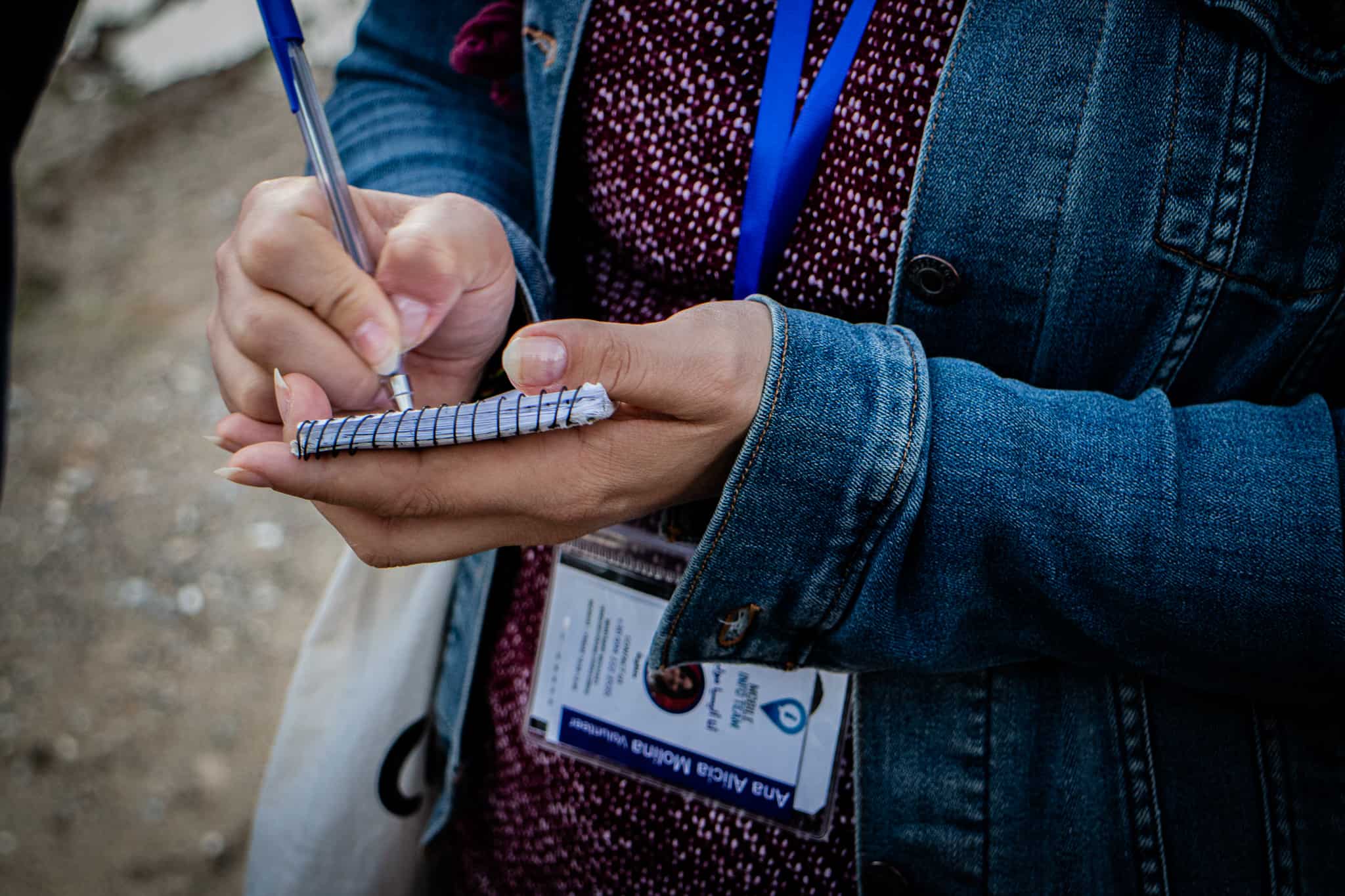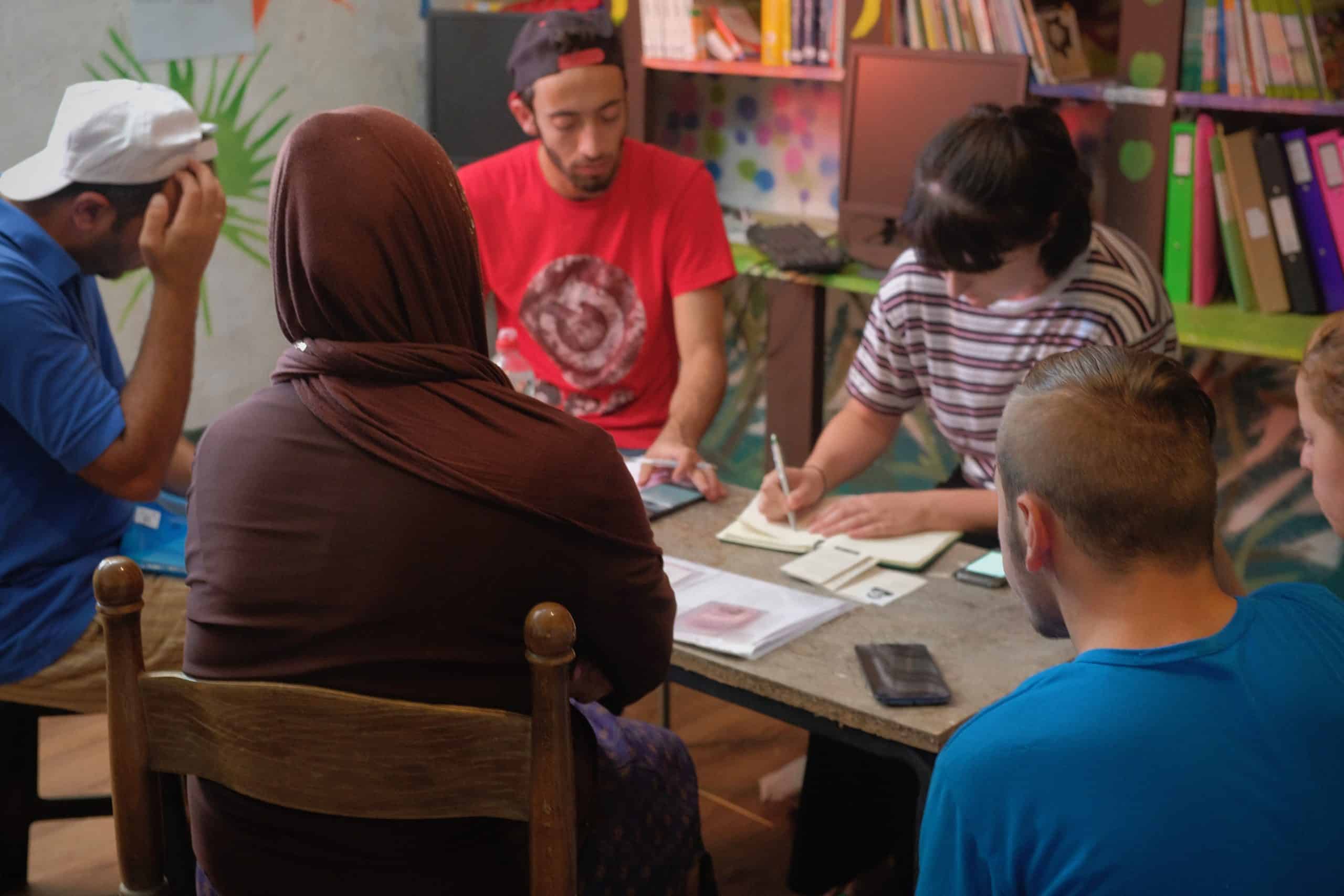This article was published more than 4 years ago.
For countless refugees fleeing war, persecution, or natural disasters in their home countries, the shores of Greece offer the promise of a new life in Europe.
Instead, Greece has become a holding pen for more than 85,000 asylum seekers and refugees stuck in a labyrinthian nightmare of xenophobia, squalid conditions, and endless bureaucratic red tape.
Fortunately, the Fund-supported Mobile Info Team (MIT)—a mostly volunteer group of law graduates—is there to help refugees navigate the complexities of Europe’s asylum process.
MIT was founded in 2016, when a pair of aid workers noticed the dearth of clear and reliable information available to asylum seekers. Amid an influx of refugees primarily from Syria, Afghanistan, and Iraq, Greece’s neighbors had closed their borders and the European Union had adopted stringent new controls to prevent movement. Caught between a humanitarian crisis at home and a political crisis in Europe, thousands of asylum seekers were stranded in makeshift camps along the border.
Realizing the glaring information deficit, the founders of MIT sought to provide accurate, up-to-date information at “info tents” established in the camps. When the provisional camps were cleared, they accompanied the refugees to state-run camps near Thessaloniki—thus, the info team went mobile.

As the legal and political situation continues to deteriorate, MIT has stepped up. First, they enlisted camp residents to serve as translators, offering support and information in Arabic, Farsi, Urdu, English, and French. They started a Facebook page—that boasts close to 60,000 followers—to provide verified, fact-checked information about the asylum process online. They created a multi-language telephone hotline for information about the asylum process, which receives dozens of messages a day. And their community center information sessions have helped inform thousands of refugees of their rightful pathways to asylum. On average, MIT provides information and assistance to more than 1,000 people per month.
MIT has also become a powerful advocate for refugees, engaging with international policymakers and local authorities to fight for important structural reforms to the asylum system. Their advocacy team has improved access to the asylum system for Urdu speakers, gathered critical testimonials on illegal pushbacks at the Greece-Turkey border, and collected nearly 30,000 signatures for a petition against Germany’s move to limit the number of family reunification flights.

In 2021, MIT’s staff has grown from five qualified caseworkers to seven, with services now offered in Kurdish and Somali. Earlier, in 2020, they contracted an experienced local asylum lawyer who is able to represent their clients in Greek courts—a major step forward for their strategy, they say.
With support from the Fund, MIT has been able to provide the in-depth legal advice and reliable information that hundreds of refugees needed to gain asylum, request work permits, or even be reunited with their families. The Fund is proud to support MIT as they defend the rights and dignity of displaced people in Greece, and to stand with refugees, asylum seekers, and their allies everywhere.
The Fund for Global Human Rights is grateful to Comic Relief for their ongoing support of our work with frontline migrant and refugee groups across the Euro Mediterranean region, enabling these groups to sustain and elevate their work and respond to the ongoing impacts of COVID-19 and the Afghanistan crisis.
Learn more about our work protecting the rights of migrants, refugees, and asylum seekers, and sign up for our email newsletter with regular updates and stories about courageous activists.



